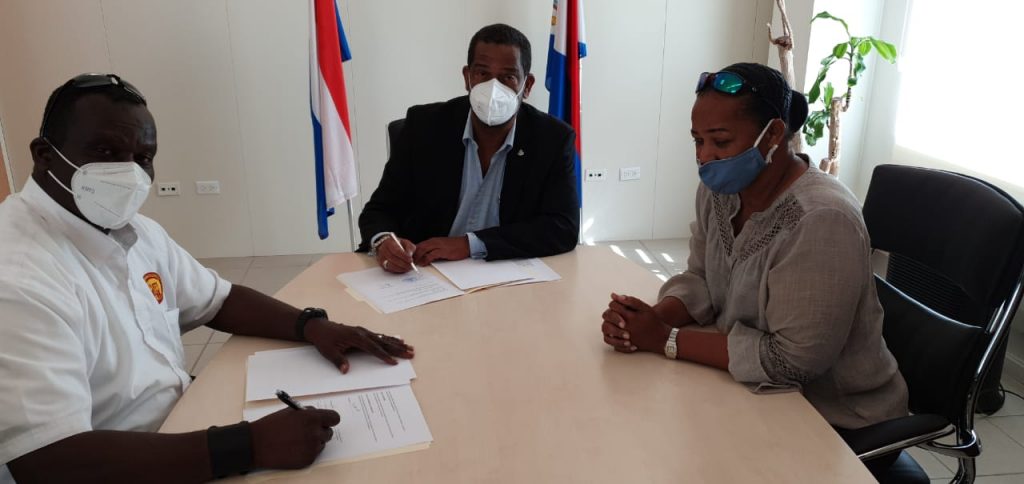The Minister of Public Health, Social Development and Labour (VSA), Richard Panneflek is elated to announce that the transitional shelter program has been extended for one year. A public bidding process will also be underway to ensure a contract for 2 to 3 years is established in line with transparency and good governance. By securing the contract for a year, the Ministry of VSA along with the Dr. J. Foundation was able to secure shelter for 32 persons who would have been homeless, had the contract not been renewed. Among the 32 were pensioners, families with children, and other individuals. Upon taking office, it was apparent that not only is homelessness a result of the passing of hurricanes Irma, Maria and Jose but also due to the COVID-19 pandemic. In addition, it has become apparent that homelessness is not an acute issue but a chronic issue affecting our community.
The transitional shelter was established in February 2018 for an operational period of two years to facilitate the persons who were displaced by Hurricanes Irma and Maria. The program was first extended by three months then by six months due to the success and remaining residents were unable to transition because of their finances and lack of affordable housing. The current shelter can house up to 75 persons at a time, and is near capacity. However, the program works with all residents to rehabilitate persons back into the community by helping them find work, save, and find an affordable place to live.

As the challenge of homelessness continues to grow on St. Maarten and in efforts to ensure that more of our population do not end up homeless, we must focus on prevention efforts; ensuring there are plans for emergency response in the event that persons do end up homeless, such as the Dr. J. Foundation T-shelter but also social housing development plans.
Minister Panneflek considers developing a long term plan on homelessness a high priority starting with social housing for the vulnerable, including spaces for acute cases of homelessness, strengthening the rental committee and exploring the options for housing assistance.
A special word of thanks is hereby extended to the Dr J. Foundation that operates the Transitional Shelter and Rehabilitation Program.

